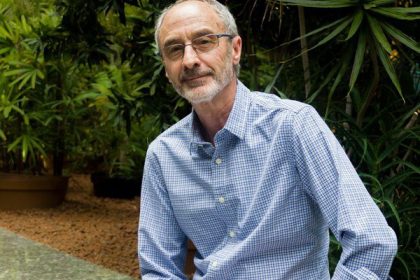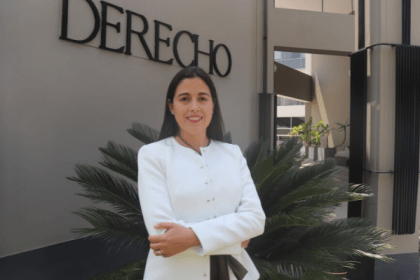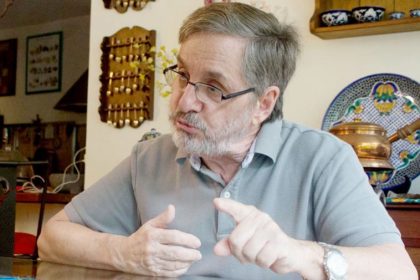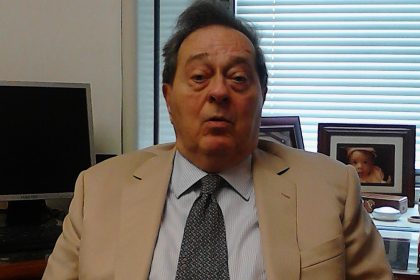What’s the social and emotional impact of the Venezuelan crisis? That is one of the interrogatives that led us to approach Mireya Lozada, Coordinator of the Political Psychology Area of the Central University of Venezuela, Doctor in Psychology and host of the opinion group Aquí cabemos todos (Everyone fits here in English), one of the promoters of the event Venezuela no se rinde (Venezuela doesn’t give up in English) held on 6 March 2018.
How do you define this moment, taking into account the starring of the social movements after the event Venezuela doesn’t give up held on the Main Hall of the university?
I believe the social sectors of the different socio-economic strata, cultural levels, etc. show different characteristics, different in regards to their goals, to their needs in this financial vulnerability and unpredictability, but they have a common feature and that is the uncertainty of the question, “what will happen next?” That question is shared in all sectors of society, you can overhear it in the lines to buy food, in academic sectors, in the family. I think this feeling of exhaustion, anguish and fear affects the day to day life, because it is an unbearable feeling for being unsustainable and intolerable, because, from the point of view of psychological and physical resistance, people gradually collapse.
Is it possible that it is a strategy to make people resign and demobilise?
The population is holding on and tries to survive in this prolonged agony in the hope that “something will happen” -not something magical-, something that finishes with all the problems, even if it involves a tragedy or a situation that might become violent. It is not like it has been rumoured, since a few years ago, a social outburst like El Caracazo, I think it is not necessary, but something that ends this situation. When we ask “Why hasn’t it happened?” I think it is happening, every single day there are demonstrations, there are situations of confrontation, there are people being detained, people protesting, people dying. All the time, there are things going on and fractures, confrontations across the country.
But not in a coordinated way, like last year’s protests
Not in a coordinated way, but we also don’t learn much because of the communicational blockage and because the media do not broadcast it -and there are regulations when they do. The dissemination and access to information of that social unrest is limited. That is a clear and intentional policy of the government.
THE POPULATION AND THE CRISIS
How is the population facing the several difficult situations?
The Venezuelan people is surviving the crisis in several ways: looking for shortcuts, solving this here, compensating there. They seek to substitute some food for others, among several strategies. That has health consequences, of course.
How does it affect the population from a psychological, mental, spiritual point of view?
It has consequences. Starting with the frustration levels a father or a mother can feel when having an insufficient salary to sustain their family, which cannot even pay the transport of their children to go to school. Along with frustration, there is also pain. It affects emotionality as there is a lot of anger and powerlessness. Such unrest is gathering and the feeling of domination to which they are exposed after the lack of covered needs is not the only one, but it is the most common in lower and more excluded sectors of society, in different levels depending on each social sector with its particularities. The situation in Caracas is different than inland, there are differences depending on the sector experienced. In that sense, being busy seeking survival and trying to solve basic needs should leave no spirit to call for rights, however people protest. There is a reality – the State has been plundered, in consequence the social programs are not working, institutionalism has been dismantled and the political partiality of the State generated that vulnerability, but that is not the only reason. There is also an undeniable intentionality in social control and repression, the government’s spokespeople have expressed it loud and clear.
So, Venezuelan people –no matter the social strata- feels frustration, anger, pain, fear, indignation…
And those factors are there and they are becoming more relevant in favour of the situation confronted every day. On the other side, from a psychological point of view, it’s very concerning the fact that the official sector does not recognise the reality and such denial is a risk from a social point of view. If that reality is denied, it is not met, those problems are not sought to be solved; the government keeps on an ideal vision, in a discourse that feeds its own narrative -its own rhetoric-, in the directors of the country and they define the lines of the government. It is extremely dangerous.
Do you consider there is an important sector of the population that could support such denial?
There are different social and political sectors supporting that denial. Those close or like-minded to the government support such denial, even trying to justify -for several reasons- that reality. But there is another sector, not like-minded or opposed to the government that doesn’t seem to deny it, but it’s not connected to that reality. The country is demanding a response, a political program, actions that are not being undertaken. I think the situation we are living still surprises us. We had a suspicious, debilitated democracy with deficits that had overlooked and excluded an important sector of the population. However, that democracy left clear referents from the point of view of public policies, infrastructure, educational and health programmes, etc.; so those generations that grew under those parameters are still surprised by the actions against our democratic institutionalism and by the initiatives framed under a failed political model that keeps moving forward. This model, which we still don’t know exactly how it is -with neo-authoritarianism or dictatorship definition-, does not allow them to have clear lines of action.
We are still attached to something that does not exist, it is clear in the political leadership. They are still based on those models and they do not care about the people’s suffering. This time of anomie, of disorder, of deinstitutionalisation, but also of authoritarian control and people’s will discrimination through different and sophisticated mechanisms, has prevented the formulation of strategies to resist it and the generation of alternative mechanisms of popular organisation. The use of symbols has been key during this time, it has been the mind and heart control, through discourse, through rhetoric. One of the most serious things had been the use of the popular matters, denying at the same time the popular matters and attempting against the population’s dignity. The use of bonds, the provision of populist patronage and the clientelist use of the State’s resources in support of a political group is grotesque and very serious.
What advice could you give the population to resist?
There are processes of social repair to undertake and some are happening spontaneously. Despite the crisis, despite this social fracture, despite the fragmentation of the social structure, Venezuela still bets on coexistence. People are looking for alternative mechanisms and strategies that have to do with our cultural referents and that has to do with humour, which does not mean that there are more affected people who show symptoms like insomnia or other physical or psychological symptoms, but the population get together and share, so the survival adjusts in midst of the crisis, with its own limitations. One of the most beautiful mechanisms in this context is the solidarity and mutual support. I also think the people is accompanying each other a lot from the emotional perspective, I think that recognition among ourselves has been a good symptom of this time.
THE SOCIAL ORGANISATIONS AND THE CRISIS
What role should social organisations currently play, taking into account this reality?
I think they must be part of this survival to learn what strategies can be jointly developed to deal with the crisis. There are groups that organise to buy wholesale and then distribute it, there are businesses that have made work schedules more flexible, there are institutions –like church- that offer a daily meal in many regions of the country and that involves the participation of people. All this has enabled the awareness for others’ pain, in that sense we are learning and strengthening our bonds, getting together and accompanying others in their suffering, looking for alternatives, which are the values in which the base of all the reconstruction processes will lay in the future. That ongoing citizenship construction -as I call it- toward a social awareness, the defence of the public welfare and the defence of the common space -an environment in which we were extremely negligent- will take us to the goal. Inside it, there is hope and the certainty that we will finally reach that freedom and strength that is being built.
Could that solidarity construction to face the crisis lead to bringing opposed sectors closer together in the defence of common goals?
The consequences of polarisation and the media’s hyper-representation the polarisation has had these last years generated a false concept. People coexist in the lower sectors with different visions, being careful perhaps with some of the most “radical” people. That biased vision is not the extended vision of the country, people coexist with their differences and each knows what the other believes, it doesn’t mean that certain postures are not uncomfortable, however, that does not necessarily lead to a confrontation, nor to an unbridgeable distance, rather it equals everyone as humans, facing scarceness and the need to solve it. Currently, I think there are not two confronting political sectors, but a confrontation between the population and the State. This idea is growing and it will emerge strongly and extendedly, and it will provide results after lots of pain and suffering, but also after people’s effort.
The event held on 6 March was called Venezuela altogether doesn’t give up, this has got to change” allowed me to see people joining -to the point of selling out the Main Hall of the UCV’s seats-, which is a strong symbol, getting together diverse groups of people who participated: academics, professionals, guild organisations, unions, family members of repression victims, neighbours. It was an inclusive, plural and respectful act under the roof that defeats the shadows, embracing the search for a way out of the institutional and moral destruction crisis, betting to the common, where no one tried to take the space of the other, nor tried to use it for personal campaign, the most important element was the defence of our home: Venezuela.
Provea Press





